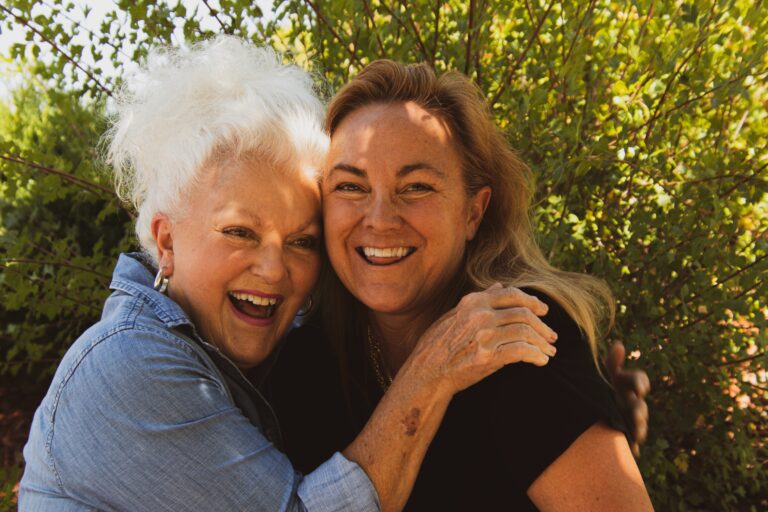When your aging parent starts showing signs of dementia, one of the challenging decisions you might face is hiring a caregiver. This process can feel daunting, but asking the right questions will help you make the best choice. Let’s explore essential questions to ask and tips on what you might expect or should look for in their answers.
1. Caregiver Certification and Training:
Questions:
– What specific training do caregivers have in dementia care?
– Are you or your caregivers certified? (may or may not be needed depending on what kind of help is needed & budget)
– Can you provide proof of certification and/or training?
Tips:
Look for caregivers who have undergone certified training programs, especially in dementia care. Proof of certification ensures that they’ve met the necessary standards of their profession.
2. Experience:
Questions:
– How many years of experience do you or your caregivers have?
– Have you or your caregivers worked with dementia patients before?
– Can you provide references from previous employers or clients?
Tips:
While experience isn’t the only indicator of capability, it’s a strong one. Previous experience with dementia patients can be particularly beneficial. Always check references to get feedback from others who have used their services.
3. Services Provided:
Questions:
– What specific services do you provide?
– How will you handle emergencies?
– Can you meet the specific needs of your loved one, especially as their dementia progresses?
Tips:
A good caregiver will be able to provide a clear list of services and adapt to the changing needs of dementia patients.
4. Costs and Insurance:
Questions:
– What are your hourly rates, and are there different rates for weekends or holidays?
– Is there a minimum number of hours required?
– Does your agency accept insurance or Medicaid?
Tips:
Ensure that the caregiver or agency is transparent about their fees. Some may offer sliding scale fees based on income, while others might have set rates.
5. Compatibility and Personal Preferences:
Questions:
– Can we meet the caregiver before hiring?
– Will the same caregiver be assigned each time, or will there be a rotation? (This will vary based on how many hours you are contracting for care. The fewer hours, the greater likelihood of having revolving caregivers).
– What is your procedure for handling situations where my parent and the caregiver do not get along?
Tips:
Ensuring a smooth transition for your loved one with dementia is paramount. It’s beneficial if the compassionate individual who first assessed your loved one’s care plan is present during the introduction to a new caregiver. This touch of familiarity can significantly help in making the shift more comfortable for your senior family member.
6. Communication and Updates:
Questions:
– How will you communicate with me regarding my parent’s condition and care?
– How often will you provide updates?
– How can I reach you in case of an emergency?
Tips:
Open and consistent communication is crucial. A good caregiver will be proactive in providing updates and will be reachable during emergencies.
7. Policies:
Questions:
– What is your replacement policy if a caregiver is sick or unable to come?
– How do you handle complaints and resolve issues?
– What is your procedure for terminating services, if necessary?
Tips:
Knowing the policies upfront can prevent misunderstandings in the future. Ensure that the policies prioritize the welfare of the senior.
8. Safety Measures:
Questions:
– How do you screen your caregivers?
– Are your caregivers bonded and insured?
– How do you handle situations where there is suspected abuse or neglect?
Tips:
Safety should be a top priority. Caregivers should undergo background checks and have mechanisms in place to address any issues that arise.
9. Legal and Ethical Practices:
Questions:
– Can you provide a clear contract outlining services, fees, and policies?
– How do you ensure the confidentiality and privacy of my parent?
– How do you comply with state and federal regulations regarding home care?
Tips:
Transparency in legal and ethical practices is essential. A clear contract will prevent potential conflicts, and adherence to privacy norms is vital to protect your parent.
10. Availability:
Questions:
– What is your availability, especially during evenings, weekends, or holidays?
– Is there a backup plan in case the caregiver is unable to make it on a scheduled day?
– How far in advance do I need to schedule services?
Tips:
It’s beneficial if the caregiver or agency can be flexible with their availability to cater to unexpected needs. Backup plans ensure that your senior is never left without care.
—
Choosing the right caregiver for your loved one with dementia is a profound responsibility. Armed with these questions and tips, you’ll be better equipped to make a well-informed decision that best serves your parent’s needs. Remember, trust your instincts and prioritize your loved one’s comfort and safety above all.
📸 Image by Gerd Altmann from Pixabay

From a young age, Stacey’s link to the senior care industry grew alongside her mother’s work at a nursing home, where she often accompanied her. By her early teens, she secured her first official job at a nursing home, laying the foundation for a profound journey in senior care spanning over four decades. Her roles varied from opening assisted living and memory care residences to working in nursing homes and independent senior living communities. As the former Director of Fun for 300 independent seniors, she expertly organized daily events and trips. Stacey’s unwavering passion, nurtured by her family, and professional dedication as a recreation therapist, reflect her deep commitment to preserving the dignity and well-being of seniors.
Stacey’s senior care expertise has been recognized by the media including U.S. News and World Report and Care.com.
Stacey and her husband Bryan are the owners of the senior in-home care agency A Place At Home – North Austin.




